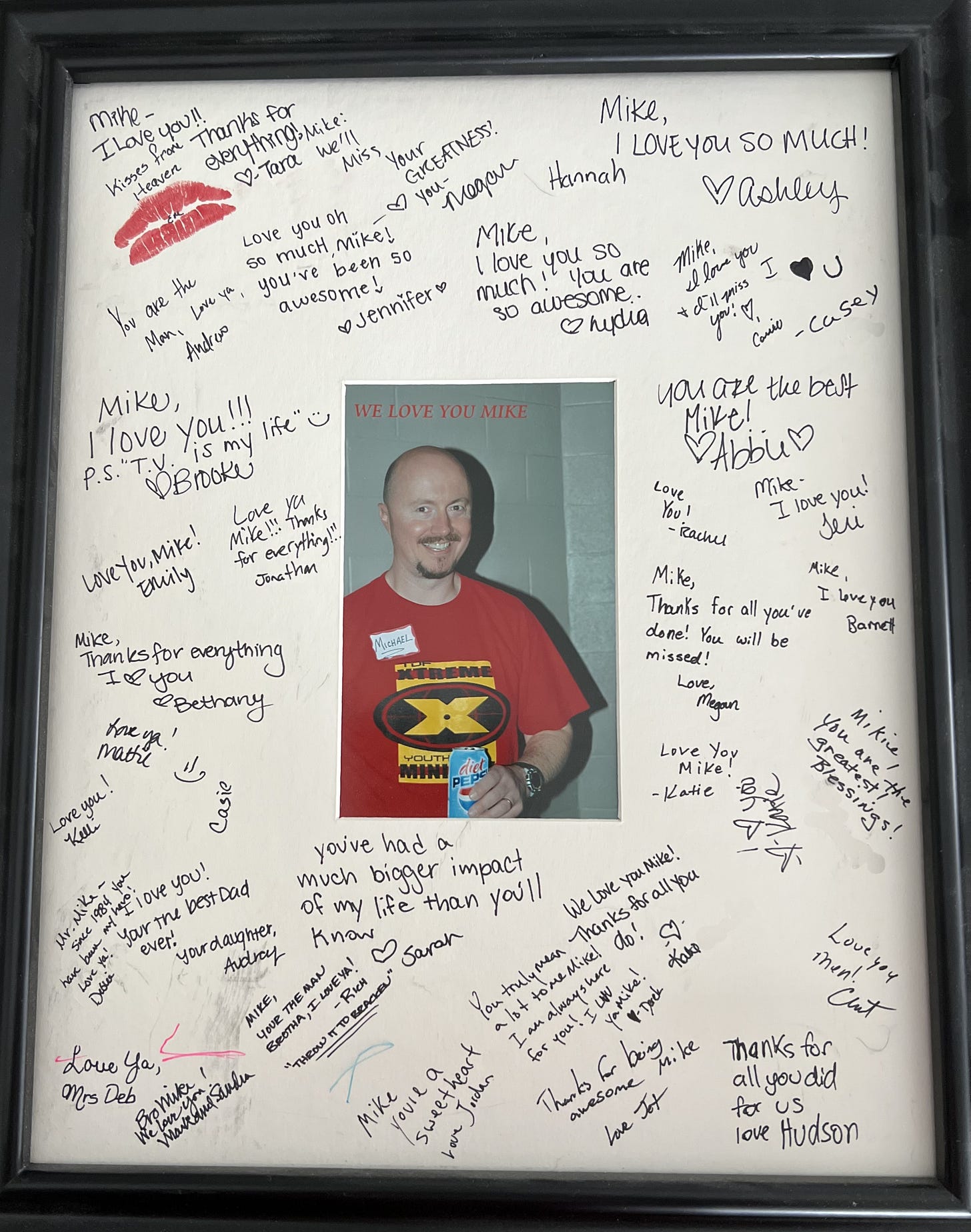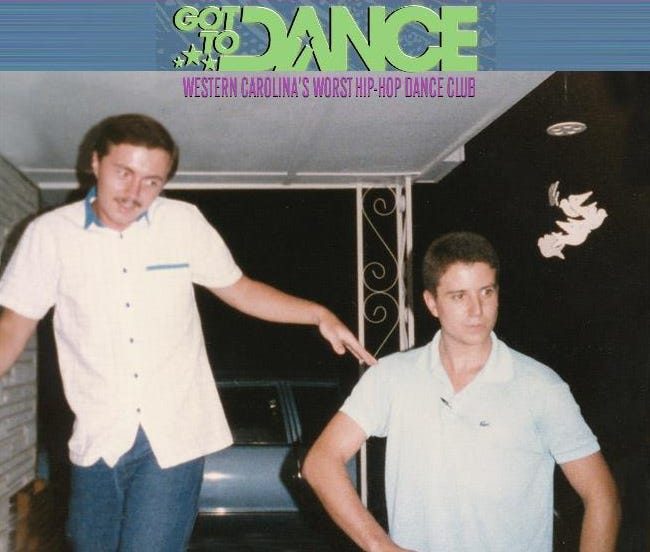Sentimentality: The Simple Power of Remembering
How memories, music, and meaning shape our lives, and how to use them wisely.

The Song That Took Me Back
Some songs don’t just play. They take you places. When I heard Scotty McCreery’s “Bottle Rockets,” a nostalgic anthem that captures the magic of a youthful summer romance on the Carolina coast, my high school years came flooding back to me.
The song is full of vivid imagery: bonfires, moonlit waves, and barefoot memories. Scotty McCreery’s lyrics paint a picture of a moment frozen in time, where love felt simple, wild, and unforgettable.
The mashup with Darius Rucker’s “Hold My Hand” deepens the emotional pull for me, turning the song into a heartfelt tribute to connection, longing, and the timeless power of music to transport us back to who we were and what we felt.
It’s a celebration of sentimentality: the kind that makes you smile, ache a little, and remember. Sentimentality isn’t a weakness. It’s a doorway to wisdom.
What Is Sentimentality, Really?
I am extremely sentimental. Sentimentality is the emotional weight we give to memories that matter. It’s the feeling that rises when a song, a scent, or a sunset brings back something deeply personal and something that shaped who we are.
It’s not only remembering. It’s reliving the emotion behind the memory. Sentimentality connects us to our past in a way that’s tender, meaningful, and often transformative.
But not all sentimentality is helpful. There’s a fine line between healthy sentimentality, which inspires and grounds us, and unhealthy nostalgia, which traps us in longing for what was.
Healthy sentimentality helps us reflect, grow, and make better decisions. Unhealthy nostalgia keeps us stuck, idealizing the past and resisting the present.
The key is learning to recognize when a memory is guiding us forward, and when it’s quietly holding us back.
I struggle with some memories that hold me back. One in particular comes from a time when I was given the opportunity to leave a job I once had. I knew that if I didn’t choose to go, the decision would eventually be made for me.
I’m genuinely grateful for that experience. It shaped me in ways I’m still discovering. But revisiting it can stir up a storm inside me. I find myself obsessing over details I can’t change, wishing I had handled things differently.
But that’s like trying to convince a squirrel to return a nut it buried last fall.
When I drift back to that time, my stomach knots up. My anxiety rises like a toddler in a toy store with no supervision. It’s irrational, but real.
That’s the thing about memories: they don’t always ask permission before they show up, and they rarely arrive quietly.
If memories are going to show up uninvited, we might as well learn how to greet them with wisdom and turn them into something useful.
The Disgustingly Simple Memory Code
Memories have power. They can stir emotion, spark creativity, and even shape our decisions. But without a simple way to work with them, they can also overwhelm us or keep us stuck.
That’s where the Disgustingly Simple Memory Code comes in. It’s a three-step framework designed to help you engage with sentimental memories in a way that’s healing, clarifying, and forward-moving.
1. Pause – Let the memory surface.
Sometimes, a memory shows up uninvited and can be triggered by a song, a scent, or a quiet moment. Other times, we go looking for it. Either way, the first step is to pause and let it rise.
Music is especially powerful here. A single lyric or melody can transport us to a bonfire night, a moonlit drive, or a moment of laughter with someone we miss. Instead of pushing the memory away or judging it, we simply let it surface.
Pause. Breathe. Feel.
This is not about fixing anything. It’s about honoring the emotion without rushing to explain it.
2. Name – Identify what the memory means.
Once the memory has surfaced, ask: What is this really about?
Is it about love?
Youth?
Freedom?
Connection?
Often, the imagery in songs: ocean waves, winding roads, shared conversations, points to deeper values we hold. Naming those values helps us understand why the memory matters. It’s not just nostalgia. It’s a clue to what we care about most.
When we name the meaning, we begin to reclaim the memory as something useful, not just emotional noise.
3. Choose – Decide what to do with the feeling.
Now comes the moment of choice. What do you want to do with this feeling?
Do you reach out to someone you’ve been thinking about?
Do you write, sing, or create something inspired by the memory?
Do you simply sit with it and let it remind you of who you are?
The goal isn’t to escape the emotion. It’s to engage with it. To let it guide you toward something meaningful.
When we learn to pause, name, and choose, sentimentality stops being something that weighs us down and starts becoming a source of strength.
Sentimentality as a Source of Strength
Sentimentality isn’t just about feeling. It’s about fueling. When we revisit meaningful memories with intention, they can become powerful sources of strength.
Boost Emotional Resilience
Memories remind us that we’ve been through hard things before, and we made it. They help us reconnect with our inner strength, especially in moments when we feel uncertain or overwhelmed.
A memory of love, laughter, or perseverance can be like emotional armor: soft, but strong.
I carry many memories of my parents and how they supported me through every stage of life. Though I miss them deeply, those memories remind me I’m not alone. They still give me strength when I need it most.
Strengthen Relationships
Shared memories are the glue of connection. Whether it’s a song that reminds you of your best friend or a story your family tells every holiday, sentimentality deepens bonds.
It helps us appreciate the people who’ve shaped our lives and sometimes nudges us to reach out, reconnect, or simply say thank you.
I have friends who’ve been with me since college, and even now, a single phrase or reference can send us into laughter. Those moments remind us not only of the good times but of how much we still matter to each other.

Do you have a significant other? If so, do you have a “special song?” My wife and I don’t have a “special song.” In fact, our musical tastes are so different that our common ground is how much we dislike each other’s favorite styles.
It’s oddly bonding, like emotional harmony through musical disagreement.
Inspire Creativity
Some of the most beautiful art, music, and writing come from sentimental sparks. A single memory can become a poem, a painting, or a business idea.
When we allow ourselves to feel deeply, we often create more freely. Sentimentality opens the door to imagination.
Many of my articles are born from both wonderful and not-so-wonderful memories.
One of my most-read pieces came from revisiting the experience I mentioned earlier: being asked to resign from a job I loved, just three months after having a heart attack.
It was a painful season, but writing about it helped me process what happened and connect with others who’ve faced similar turning points.
And the only song I’ve ever written was inspired by a memory from early junior high, when I met a beautiful cousin from Boston one summer. I haven’t shared it on Substack yet, but the title was My First Love.
That moment stuck with me. Not because of who she was, but because it was so much fun to meet someone from a world so different from mine. (Being related was a bonus.) It made the world feel bigger, brighter, and a lot more interesting.
Clarify Values
Memories reveal what matters most. The moments we return to are the ones that stir us. They often point to our deepest values: love, freedom, belonging, and purpose. When we pay attention to what moves us, we gain clarity about who we are and what we want to build.
The past is a teacher, not a prison. (Disgustingly Simple)
When we treat memories as lessons instead of limitations, we grow. We stop trying to relive the past and start learning from it.
Reflect With Intention, Live Better
Sentimentality isn’t just something we feel. It’s something we can use. When we engage with our memories intentionally, they become tools for emotional growth, deeper connection, and wiser decision-making.
Here’s a Disgustingly Simple way to start:
Write Down One Memory
Pick one memory that shaped you. It doesn’t have to be dramatic. It just has to be meaningful. Write it down. What happened? How did it make you feel? What did it teach you?
Putting it into words helps you see it more clearly and appreciate its impact.
Use That Memory Today
Ask yourself: What can I do today because of what I’ve lived through?
Can you reach out to someone? Make a better decision? Show kindness?
Let your memory guide you toward something good and something that reflects who you’ve become.
Maybe we can't change the world, but I wanna love you the best that, the best that I can.
— from the song that inspired this article
Sentimentality reminds us what matters most, and helps us live better. Disgustingly Simple
Sentimentality isn’t a weakness. It’s wisdom wrapped in emotion. When we remember with intention, we can live better.
Our memories can guide us, ground us, and help us live more intentionally. So make space for the songs, the stories, and the moments that shaped you.
They’re not just echoes of the past. They’re reminders of what still matters most.
"Bottle Rockets" by Scotty McCreery was co-written by Scotty McCreery, Brent Anderson, Derek George, Jeremy Bussey, Monty Criswell, Frank Rogers, Bobby Hamrick, and the members of Hootie & the Blowfish: Darius Rucker, Mark Bryan, Dean Felber, and Jim Sonefeld.
The song was inspired by McCreery's memories of carefree summers in the Carolinas and features Hootie & the Blowfish.



Another great article!